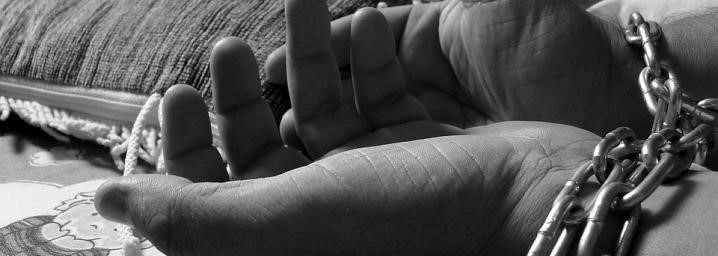
Wednesday, October 26, 2016
"We must stop human trafficking!"
“We must stop human trafficking!”, is the common appeal of the Working Group on Human Dignity in the European Parliament. On the 11th of October it organized a hearing on the topic of 'Combatting Human Trafficking'.
Mrs Dodds MEP (NI), who moderated and hosted the meeting, noted in her opening remarks that the event coincides with the annual EU Anti–Trafficking day (18 October) and that trafficking is now recognized by governments around Europe as a major trans-border challenge.
Our ECPM MEP Bastiaan Belder (ECR, Chair of the Steering Committee of the Working Group) underlined that “as a Christian, I believe that in order to fight trafficking, we need to follow the example of Jesus Christ who did not condemn sinners but helped them change their lives through his love”. He also called on the participants to imagine how they would react if members of their own families were victims of human trafficking and forced prostitution.
Three of our other MEP's were also present. ECPM MEP Arne Gericke (ECR) argued for the criminalization of the purchasing of sexual services saying that, given the damage the purchase of sexual services causes to trafficking victims, "is their sentencing in two and a half years imprisonment enough?" ECPM MEP Marek Jurek (ECR) added that "we cannot legally accept any exploitation of prostitutes" and argued for the criminalization of the purchasing of sexual services.
“If we want to understand human trafficking we need to ask ourselves who profits from the exploitation of others”, said Myria Vassiliadou (EU Anti-Trafficking Coordinator). She mentioned the findings of the first Report on progress in the fight against trafficking in human beings. The report finds that in 2013-2014 a total of 15,846 women, men, girls and boys were registered as victims of trafficking in the EU. Mrs Vassiliadou added that the refugee crisis worsened the situation as refugees are being exploited by criminal networks.
MEP Alojz Peterle (EPP) noted that a "legislative approach is necessary in the fight against human trafficking, but not at all enough. It is a problem that concerns first and foremost the victims and also society as a whole, a special issue that requires a lot of attention and personal engagement".
Lord Maurice Morrow (Member of the Northern Ireland Assembly) shared insights of his experience as author of the 2015 Human Trafficking and Exploitation Bill in Northern Ireland, a law that criminalized the purchase of sexual services. Now an Act, the law has three main aspirations:
- to criminalize the purchase of sexual services,
- to protect and provide support to the victims, and
- to reduce demand for sexual services.
Frits Rouvoet, Director of Brightfame Foundation, an organization that supports women in prostitution, said: "These women have no dreams, they don't know what to do," emphasizing the fact that the help they receive from the State is not adequate and often does not arrive in time. Finally, he argued that the use of sexual services should be criminalized again in the Netherlands.
"We must join our forces to strongly fight against trafficking in human beings which undermines human dignity in its very essence. I call on wide European cooperation in prevention of these horrible crimes and strong protection of victims", underlined MEP Miroslav Mikolášik (EPP), chairman of the EPP Working Group on Bioethics and Human Dignity and also present.
ECPM has urged since long that the best solution to combat human trafficking is to encourage member states to criminalize the purchase of sex in all circumstances.